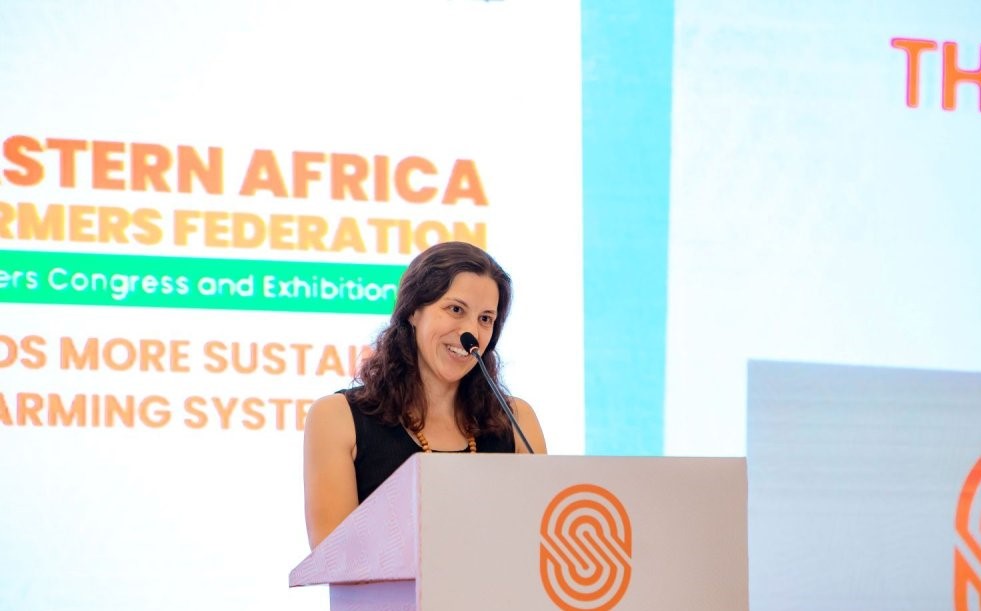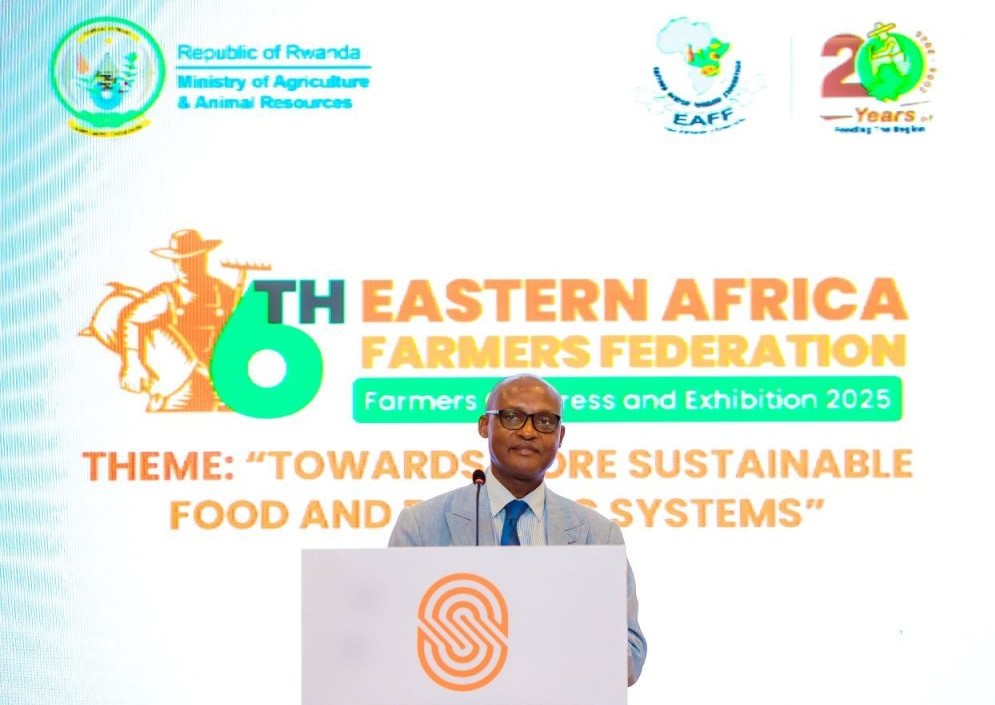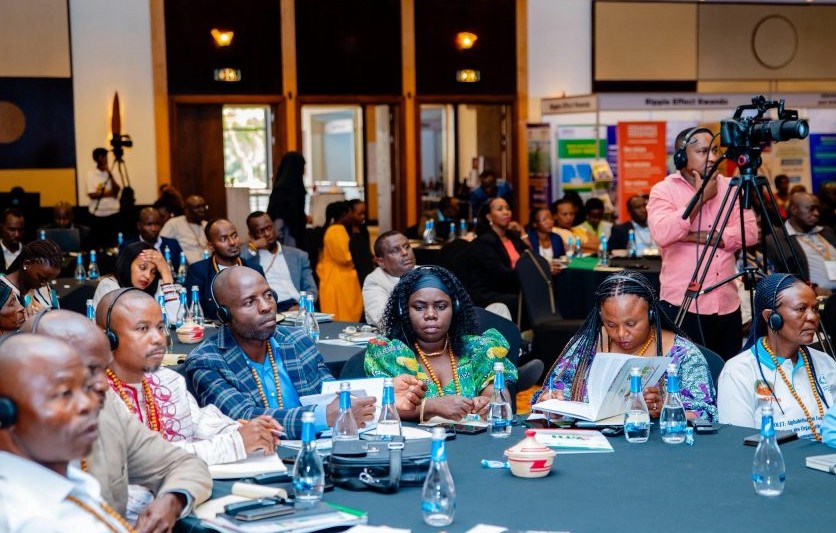The European Union has pledged Rwf 44 billion (26 million euros) to support Rwandan farmers’ cooperatives, adding to previous contributions of over Rwf 127 billion through the International Fund for Agricultural Development (IFAD). The funding aims to strengthen sustainable agriculture, improve rural livelihoods, and enhance food security.
The announcement was made on September 30, 2025, during the East African Farmers Federation (EAFF) conference in Kigali, which brought together farmers, policymakers, and development partners from across the East African Community (EAC). The meeting focused on sustainable farming practices and long-term productivity strategies.

Elise Hadman, Deputy Head of Finance and Policy at the EU Delegation in Rwanda, highlighted the EU’s commitment to supporting smallholder farmers. “So far, cooperatives and agri-processors have accessed more than 75 million euros through EU–Bank of Kigali partnerships under IFAD. Today, we are pleased to confirm an additional 26 million euros, bringing total EU support to over Rwf 170 billion,” Hadman said.
Rwanda’s Minister of Agriculture and Animal Resources, Dr. Mark Cyubahiro Bagabe, explained that agriculture thrives when land is pooled and managed collectively. Consolidated land allows farmers to reduce costs, access machinery, and produce larger harvests that can reach the market. “Farming that sustains Rwandans is not the small plot you see — it is agriculture practiced on consolidated land that reaches the market,” he said.

Dr. Bagabe emphasized that EU funding should be used to expand production, not for consumption, to help reduce Africa’s reliance on imported food.
Market access and climate adaptation remain key challenges. Elizabeth Nsimadala, EAFF President, said more than 250,000 cooperative members already use digital platforms to sell their produce. EAFF also trains youth and connects them with partners such as the Food and Agriculture Organization (FAO), helping them market their crops and access financing. Women farmers benefit from targeted empowerment programs.

Césarie Kantarama, a farmer and leader of the Ingabo farmers’ union, noted that unpredictable weather continues to affect yields. However, government measures — including irrigation, tree planting, and high-quality seeds — help farmers adapt. He added that cooperative action, from local to regional levels, strengthens production and builds resilience.
The EU expects its total support to Rwanda’s agriculture sector to reach 500 million euros between 2020 and 2030, reinforcing sustainable farming and food security across the country and the region.











